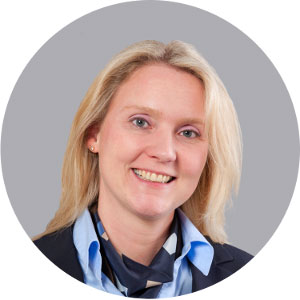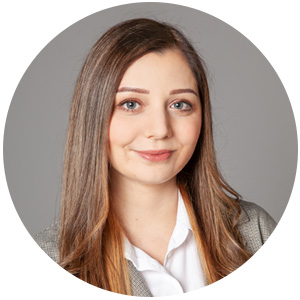During this conference representatives from the regulatory bodies, research institutes and industry representatives will present the most pressing questions on how to deal with process, environmental and agricultural contaminants as well as residues.
Contaminants and residues are strictly regulated within the European Union. The risk management and toxicological assessment of contaminants and residues, essential to produce compliant products, poses challenges across the entire food industry.
The conference brings together representatives from regulatory and industry backgrounds, as well as political decision-makers to discuss the latest regulatory developments. It keeps track of scientific progress, advances in food analysis and recent developments in risk assessment.
Professionals working in the fields of:
Sectors taking part:
Picture Credit: © istockphoto – mammamaart
Timings are in Central European Time.
Dieter Schrenk, University of Kaiserslautern, Germany
Peter Fürst, University of Münster, Germany
Frans Verstraete, European Commission, Belgium
Sadat Nawaz, Fera Science, UK
Friedrich Klapdor, The Hamburg Authority for Justice and Consumer Protection (BJV), Germany
Raquel Medeiros, Nestlé, Switzerland
Britta Müller, Bavarian Health and Food Safety Authority LGL, Germany
Richard Stadler, Nestlé, Switzerland
Ron Hoogenboom, Wageningen Food Safety Research (WFSR), The Netherlands
Michele Suman, Barilla, Italy
Timings are in Central European Time.
Dieter Schrenk, University of Kaiserslautern, Germany
Peter Fürst, Münster, Germany
Veerle Vanheusden and Frans Verstraete, European Commission, Belgium
Benedikt Cramer, University of Münster, Germany
Bettina Grasl-Kraupp, Medical University of Vienna, Austria (virtual presentation)
Rüdiger Helling, Saxon State Ministry for Social Affairs and Cohesion, Germany
Maria Bastaki, European Food Safety Authority (EFSA), Italy
Linda Schreiner, Bavarian Health and Food Safety Authority LGL, Germany
Holger Sieg, German Federal Institute for Risk Assessment (BfR), Germany
Name
Company
Maria Bastaki
European Food Safety Authority (EFSA), Italy
Maria Bastaki is a Toxicologist and a Scientific Officer in the Methodology & Scientific Support Unit of the Risk Assessment Services Department of EFSA in Parma since 2020. She is the scientific coordinator of working groups of the EFSA Scientific Committee on cross-cutting chemical risk assessments and risk-benefit assessments. Her work focuses on hazard assessment of chemicals and health risks from exposure to chemicals relevant to food, based on mode-of-action and weight of evidence approaches. She is interested in health risk assessments that address multiple chemical exposures and the potential of toxicokinetic and/or toxicodynamic interactions.
moreless
Benedikt Cramer
University of Münster, Germany
Benedikt Cramer is working at the Institute of Food Chemistry at the University of Münster as Head of the Service Unit “Instrumental analysis and spectroscopy”. The focus of his research is the impact of food processing on contaminants such as mycotoxins or furans. In addition, Benedikt Cramer is working on the development of new analytical methods for the determination of mycotoxins, their degradation products and their metabolites in various matrices.
moreless
Peter Fürst
Münster, Germany
Peter Fürst retired as the Director from the CVUA-MEL (Chemical and Veterinary Analytical Institute Münsterland-Emscher-Lippe) in March 2019 and now works part-time at the University of Münster as a Honorary Professor. He joined the EFSA CONTAM Panel from 2006 to 2015 where he was Vice-Chair from 2012 to 2015. Since 2018 he has been a member of the EFSA FAF Panel.
moreless
Peter Fürst
Münster, Germany
Peter Fürst retired as the Director from the CVUA-MEL (Chemical and Veterinary Analytical Institute Münsterland-Emscher-Lippe) in March 2019 and now works part-time at the University of Münster as a Honorary Professor. He joined the EFSA CONTAM Panel from 2006 to 2015 where he was Vice-Chair from 2012 to 2015. Since 2018 he has been a member of the EFSA FAF Panel.
moreless
Bettina Grasl-Kraupp
Medical University of Vienna, Austria
Bettina Grasl-Kraupp is a Professor and a European Registered Toxicologist and leads the Research Unit “Chemical safety and cancer prevention” at the Institute for Cancer Research of the Medical University of Vienna. She is a member of several scientific societies and since 2014 she has been a member of the EFSA CONTAM Panel and is the Chair of the WG on Glycoalkaloids.
moreless
Rüdiger Helling
Saxon State Ministry for Social Affairs and Cohesion, Germany
Rüdiger Helling worked as Head of the Food Contact Materials and Consumer Goods Section at the Saxon State Laboratory for Public and Veterinary Health for 14 years and is member of several scientific advisory committees. In his current position as Head of Division at the Saxon State Ministry for Social Affairs and Cohesion he is responsible for the whole diversity of not only contaminants in food.
moreless
Ron Hoogenboom
Wageningen Food Safety Research (WFSR), The Netherlands
Ron Hoogenboom is the Assistant Programme Leader Food Contaminants at Wageningen Food Safety Research, dealing with environmental contaminants, pesticides and toxins from moulds, algae and plants. Since 2012 he has been a member of the EFSA CONTAM Panel and was the vice-chair of the WG on PFAS.
morelessFriedrich Klapdor
Hamburg Authority for Justice and Consumer Protection (BJV), Germany
Friedrich Klapdor is the Head of Section for Food Safety and responsible for food safety in the Food Safety and Veterinary Office at the Hamburg Authority for Justice and Consumer Protection (BJV).
moreless
Raquel Medeiros
Nestlé, Switzerland
Raquel Medeiros has been the Head of Food Safety – Chemical Contaminants and Packaging - at Nestlé since 2022: She is a Quality Food Safety leader with over 19 years of experience from R&D to Operations across multiple countries and product categories. She focuses on a continuous improvement mindset and risk assessment approach driving simplicity in Quality and Food Safety systems.
moreless
Britta Müller
Bavarian Health and Food Safety Authority LGL, Germany
Britta Müller is a Veterinarian and the Coordinator of the early warning system aimed at early identification of potential health risks and fraudulent practices in the food sector at the Bavarian Health and Food Safety Authority (LGL). She is involved in designing new control strategies.
morelessSadat Nawaz
Fera Science, UK
Sadat Nawaz is Head of UK National Reference Laboratory at Fera Science, based in York, UK. Sadat has worked at Fera for over 25 years. He has travelled extensively to Europe, Africa, Asia and South America to provide training and consultancy on pesticides residues analysis and setting up monitoring programmes. His current interests include development of efficient, and cost-effective strategies for analyses of pesticides in food and environmental samples.
moreless
Linda Schreiner
Bavarian Health and Food Safety Authority LGL, Germany
Linda Schreiner is a Food Chemist and has been working in the food sector at the Bavarian Health and Food Safety Authority (LGL) since 2020. She is involved in the investigation and legal evaluation of different contaminants in food and water. In 2015 she joined the Fraunhofer Institute for Process Engineering and Packaging (IVV) as a PhD student and later the Chair of Aroma and Smell Research of the Friedrich-Alexander-University of Erlangen-Nürnberg.
moreless
Dieter Schrenk
University of Kaiserslautern, Germany
Dieter Schrenk has been a Professor for Food Chemistry and Environmental Toxicology at the University of Kaiserslautern since 1996. In 2005 he took on the full professorship for Food Chemistry and Toxicology. He joined the EFSA CONTAM Panel in 2003. Since 2018 he has been the Chair of this panel.
moreless
Holger Sieg
German Federal Institue for Risk Assessment (BfR), Germany
Holger Sieg is a Biochemist and a Scientist in the Unit \"Effect-based Analytics and Toxicogenomics\" in the Food Safety Department at the German Federal Institute for Risk Assessment (BfR) in Berlin. His projects conduct research concerning the uptake and effects of orally ingested nanomaterials on the human body, with focus on the intestine and liver.
moreless
Richard Stadler
Nestlé, Switzerland
Richard Stadler is the Head of the Institute for Food Safety & Analytical Science at Nestlé in Lausanne. Richard has held several research and quality management positions within Nestlé. He is also the Chairman of the FoodDrinkEurope contaminants expert group.
moreless
Michele Suman
Barilla, Italy
Michele Suman is the Head of the Food Safety & Authenticity Research Unit at Barilla, working in an international context on research projects within the field of food chemistry, food safety-quality-authenticity, food contact materials, sensing and mass spectrometry applications. He is the Chair of the Italian National Normative Organization (UNI) Food Authenticity Working Group, the Vicechair of the ILSI Food Contaminants Task Force and Coordinator of Quality-Food Safety Pillar - Italian National Cluster Agrifood Scientific Board. Finally, he is Adjunct Professor of AgriFood Authenticity at Catholic University Sacred Heart – Milan/Piacenza.
moreless
Veerle Vanheusden
European Commission, Belgium
Veerle Vanheusden is a Policy Officer in DG SANTE of the European Commission. She joined the European Commission in 2013, where she worked for four years in the Unit “Pesticides and Biocides”. In 2017 she moved to the Unit dealing with food processing technologies and novel foods, where her main area of activity is the EU policy and legislation on contaminants. She has previously worked in the private pharmaceutical sector.
moreless
Frans Verstraete
European Commission, Belgium
Frans Verstraete works in the European Commission in the Direction General SANTE and is responsible for legislation on contaminants.
morelessParticipation Fee: € 1,195.00 plus VAT.
The registration fee includes the following benefits:
Representatives of an authority or a public university are therefore eligible for a reduced fee of € 695.00 plus VAT per person (please provide evidence). The reduced fee cannot be combined with other rebates.
Group Reductions
For joint bookings received from one company we grant a 15% discount from the third participant onwards.
Terms of Cancellation / Book without Risk
You can cancel your participation in our online events free of charge and without giving reasons in writing up to 1 week before the start of the event. In the case of later cancellations and non-login to the online event, no participation fees can be refunded.
In this case, however, you will receive access to the documentation after the event.
You can name a substitute participant free of charge at any time.

Sabine Mummenbrauer
Programme and conceptual design
+49 231 75896-82
smummenbrauer@akademie-fresenius.de

Sabine Mummenbrauer
Programme and conceptual design
+49 231 75896-82
smummenbrauer@akademie-fresenius.de

Sabine Mummenbrauer
Programme and conceptual design
+49 231 75896-82
smummenbrauer@akademie-fresenius.de

Jennifer Zerth
Organisation and participant management
+49 231 75896-79
jzerth@akademie-fresenius.de

Jennifer Zerth
Organisation and participant management
+49 231 75896-79
jzerth@akademie-fresenius.de
Present your Company at the Event.
You can personally present your products and services directly to your specified target group. We are happy to provide you with further information on our range of available options – from displaying company information at the reception counter to presenting your company with an exhibition stand.
We would be pleased to assist you personally:

Monika Stratmann
Phone: +49 231 75896-48
info@akademie-fresenius.de
We offer journalists and editors a platform where they can get in touch with the experts.
If you are the editor of a specialist publication and interested in a press pass or media partnership, please contact us well in advance. We are happy to advise you.
Please contact us:

Katharina Geraridis
Phone: +49 231 75896-67
presse@akademie-fresenius.de
© Die Akademie Fresenius GmbH